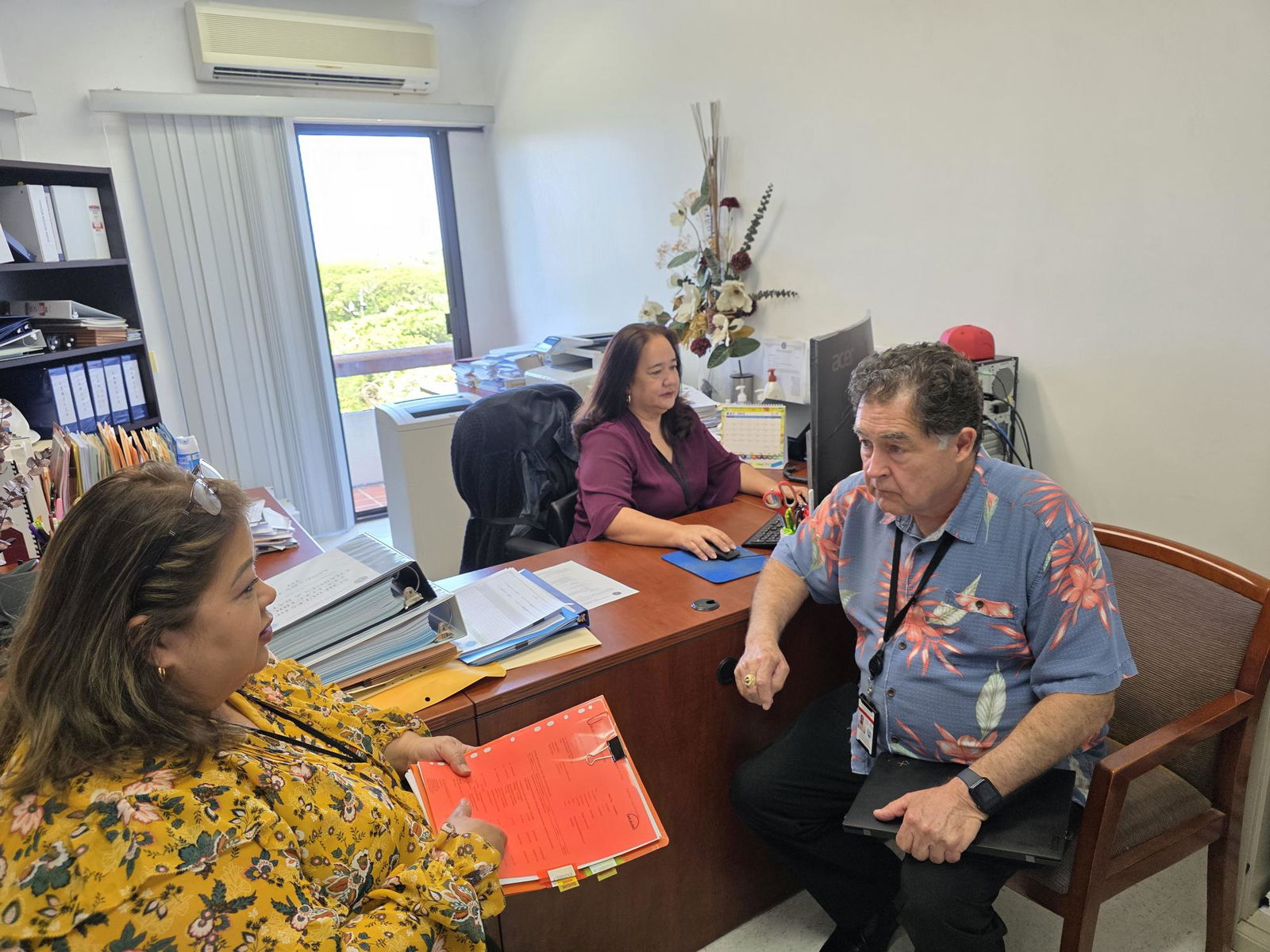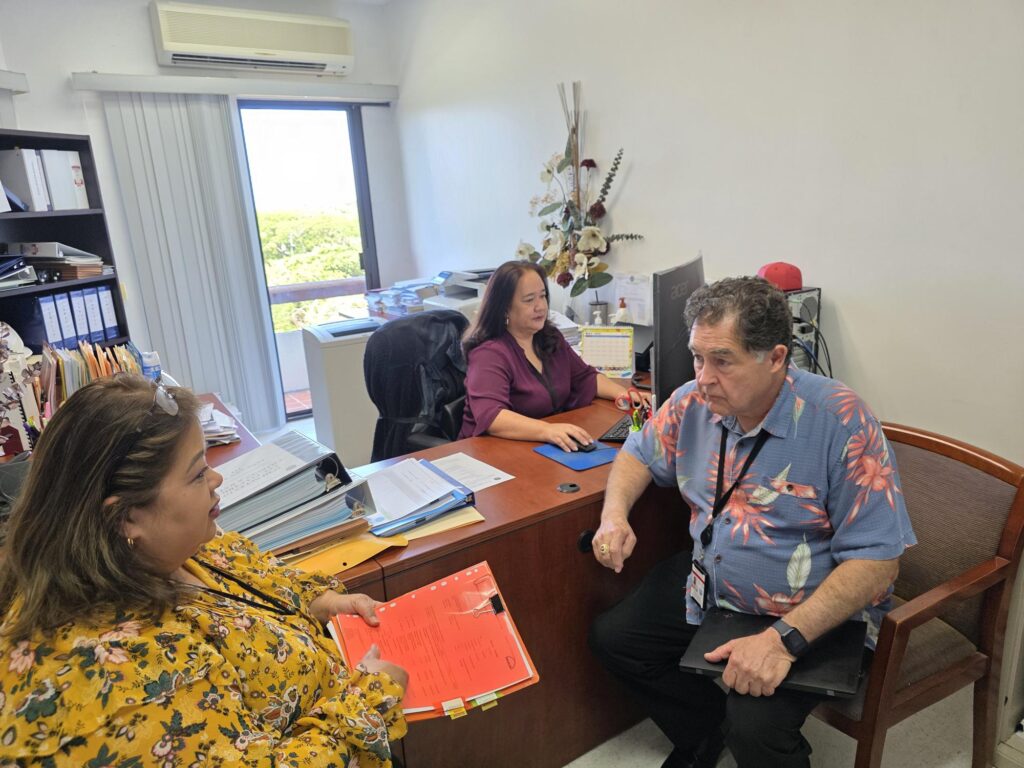
CUC Executive Director Kevin Watson, right, with Chief Financial Officer Betty Terlaje, left, and Betty Diaz, CUC management analyst.
THE Commonwealth Utilities Corporation’s cost of service study has been completed, and its consultants have proposed a 6% utility rate increase, CUC Executive Director Kevin Watson said.
“We are mandated by law to recover the cost of expenses through revenue. Our consultants at economists.com have completed the cost-of-service study that basically showed that we are operating below recovery and that if this continues it will put CUC in a very bad position,” Watson said.
He noted that the most recent cost of service study was conducted more than 10 years ago. The last rate increase was also implemented around the same time.
Watson said CUC’s consultants with economists.com proposed a 6% base increase for power, water and wastewater that will be spread across five years to minimize the impact on ratepayers.
“Now the CUC board has to approve the consultants’ rate increase proposal and then the board will present it to the Commonwealth Public Utilities Commission, who will set the rate. CPUC then will have to present it for public comment within 45 days,” Watson said.
He said the cost of service study showed that if CUC continues to operate as it currently does, it will be $300 million in the red within 10 years.
In a virtual presentation to the CUC board of directors on Tuesday, Dan Jackson of economists.com proposed three scenarios for a rate increase.
“The first are new rates that will be gradually implemented over a five-year period that would result in CUC recovering its full cost of service. The advantage of this is the rates will be adjusted gradually each year. The disadvantage is that it would mean CUC, for a period of the next three to five years, will continue to recover less [than] the revenue that it needs to run the utility company.”
Jackson said the second scenario is “a one-year plan, which is basically doing the entire rate adjustment necessary to force CUC to recover its costs in a single rate adjustment. The advantage to that is CUC will eliminate the operating deficit immediately. The disadvantage to that is that it would be a more significant and immediate great impact on the ratepayers.”
The third scenario, he added, is “a five-year plan that gradually phases out the government rate and adopts a rate that would be equivalent to the commercial rate over a five-year period. The advantage of this is the government rate would eventually go down and the government’s obligations would be less. The disadvantage is that it would [result in] a significant higher rate increase on the residential and commercial customers. The average residential water customers would end up paying about $30 more a month under this plan.”
According to CUC Board Chair Allen Perez, “All utility corporations are supposed to operate and set their rates to recover their operating costs. CUC has not done that for over a decade. For the last two years the board has been deliberating and hired experts to find the actual cost of service. It is our mandate.”
“CPUC is going to have to get involved in this, too,” he added.
Asked for comment, Dr. Jack Angello, CPUC’s acting chair, said: “Since any proposed CUC base rate increase must be officially filed with the CPUC by a petition, we commissioners can’t take any specific position or action on something not before us. Once a petition is filed it is then subject to CPUC scrutiny, CPUC consultancy, and public input. CUC partakes in these matters to ensure due process for all.”
CPUC will schedule a meeting soon, he added.











